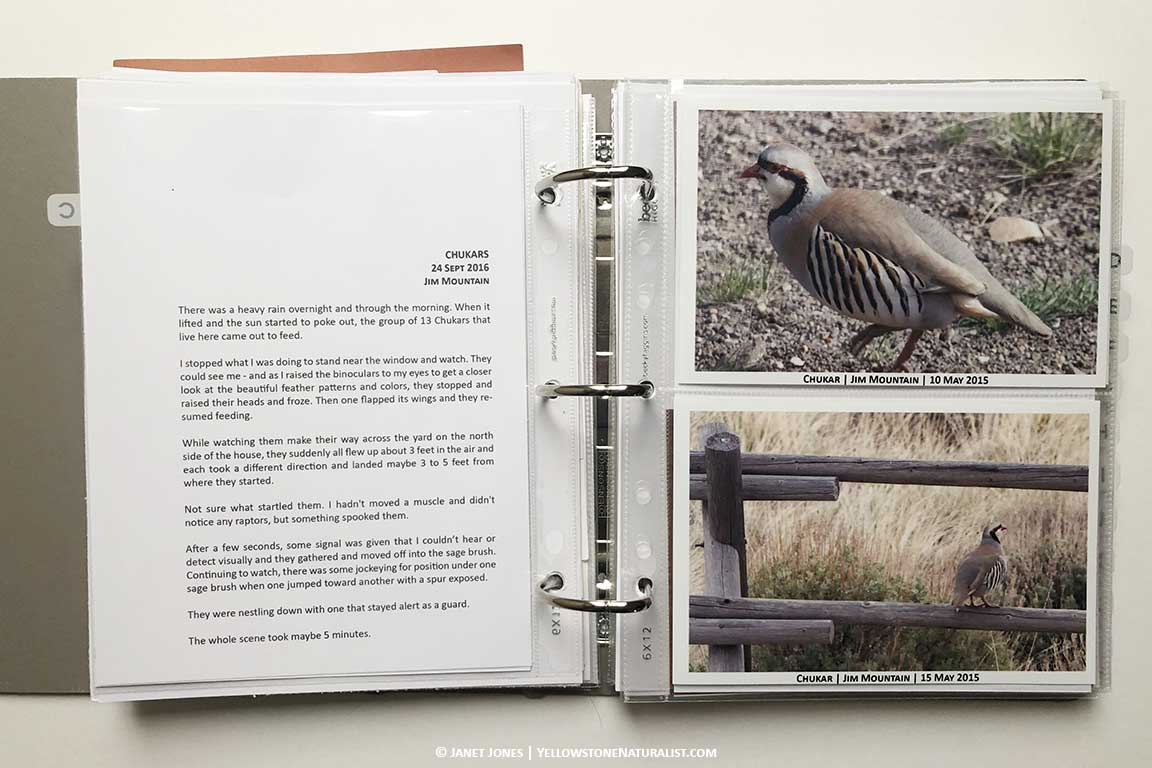Training yourself to be objective
When taking notes in the field, it’s imperative to put aside personal theories, guesses, and wild speculation. By doing so, you can see what is in front of you more objectively. This training translates to examining all aspects of your life through a more objective lens.
This post contains affiliate links. That means that if you follow a link and make a purchase, I receive a small portion of that purchase at no extra cost to you.
Ryan Holiday of the Daily Stoic said recently, “The mind wants to jump to conclusions. The mind wants to get us worked up. The mind wants not to be challenged, not to have to admit it was wrong. That’s why [the Stoics] worked so hard to question their assumptions, to build strategies for questioning their own thinking and not be at the mercy of it.”
This questioning of thought is at the heart of science. It takes discipline, practice, and being willing to put your ego aside. It means wanting to find out what’s actually happening over the importance of being right. You must be ready to be wrong and go back to the drawing board. For those who have their ego tied to an outcome, this is highly threatening.
Training your mind to see life objectively is a skill anyone can learn. Field Journaling does this beautifully. It allows for deeper introspection and looking at your own thinking more objectively. It allows you to see through the emotions and keep them from taking control of a situation. This practice lets you hear others more clearly. With that ability, it’s easier to accept and even appreciate differing thoughts without them threatening your own opinions. From there, you can choose to blend those thoughts with your beliefs or dismiss them without malice.
The book, Range: Why Generalists Triumph in a Specialized World talks at one point about how people who are more scientifically literate tend to only find evidence that supports what they already believe. And beyond that, this tendency makes them dig in deeper into their position on a topic. That surprised me.
This is a problem. It flies in the face of the intent of the scientific process and life-long learning. I have to wonder if this is part of the deep divide in our country. It’s why arguments these days seem to consist of throwing research at each other to prove a point. It takes a stance that there’s only one right answer, which is a precarious place to live.
Ironically, this often means these incredibly smart and well-educated people (whether through schooling and/or being a lifelong learner) have lost the ability to think critically about topics and look at issues without emotional reactions. Shouting matches over politics and beliefs doesn’t help us to find answers that lie in the middle ground. One of the 7 Habits is to understand in order to be understood. What if you were trying to see the world through the lens of the opposing view? To better understand why people support the causes they do? Can you do that without a negative emotional reaction? It’s tough to do – especially these days, but it’s something I continually work at.
Which brings me back to field journaling. Observing the nature surrounding you allows you to practice this skill with the joy that only nature can bring. It’s a more neutral place to start that becomes a type of meditation practice. Nature Journaling provides a break from the harder issues – whether that’s politics, or simply looking at the reality of the hard stuff in your own life. It’s a safe place to train yourself to see and listen objectively. And, it gets you away from screens for a bit.
This process of field journaling is a discipline of sorts – and perhaps a philosophy. It’s a delightful one that gets me outside in the sun and lets the Wyoming wind play in my hair for a bit. Watching the Robin take a bath and realizing the mud in the water means they are building a second nest this year. Or does it? Are they building a second nest or just a second layer on the first? More observations are needed.
Continue to question your thoughts. Leave the hard stuff for later – and let the practice of being objective slide into your life easily and joyfully through nature journaling. Even if you don’t take notes or document your observations, the practice of simply observing the life around you will pay off with greater rewards than you might expect.
Use my affiliate link to
Be Outside • Take Notes
AFFILIATE LINKS
This site contains affiliate links. If you click on a link and make a purchase, I receive a small portion of that sale at no extra cost to you. Your purchases help to keep this site in development.
SHOP ON AMAZON
GET MORE NEWS AND ANNOUNCEMENTS
Sign up for the Yellowstone Naturalist Newsletter

